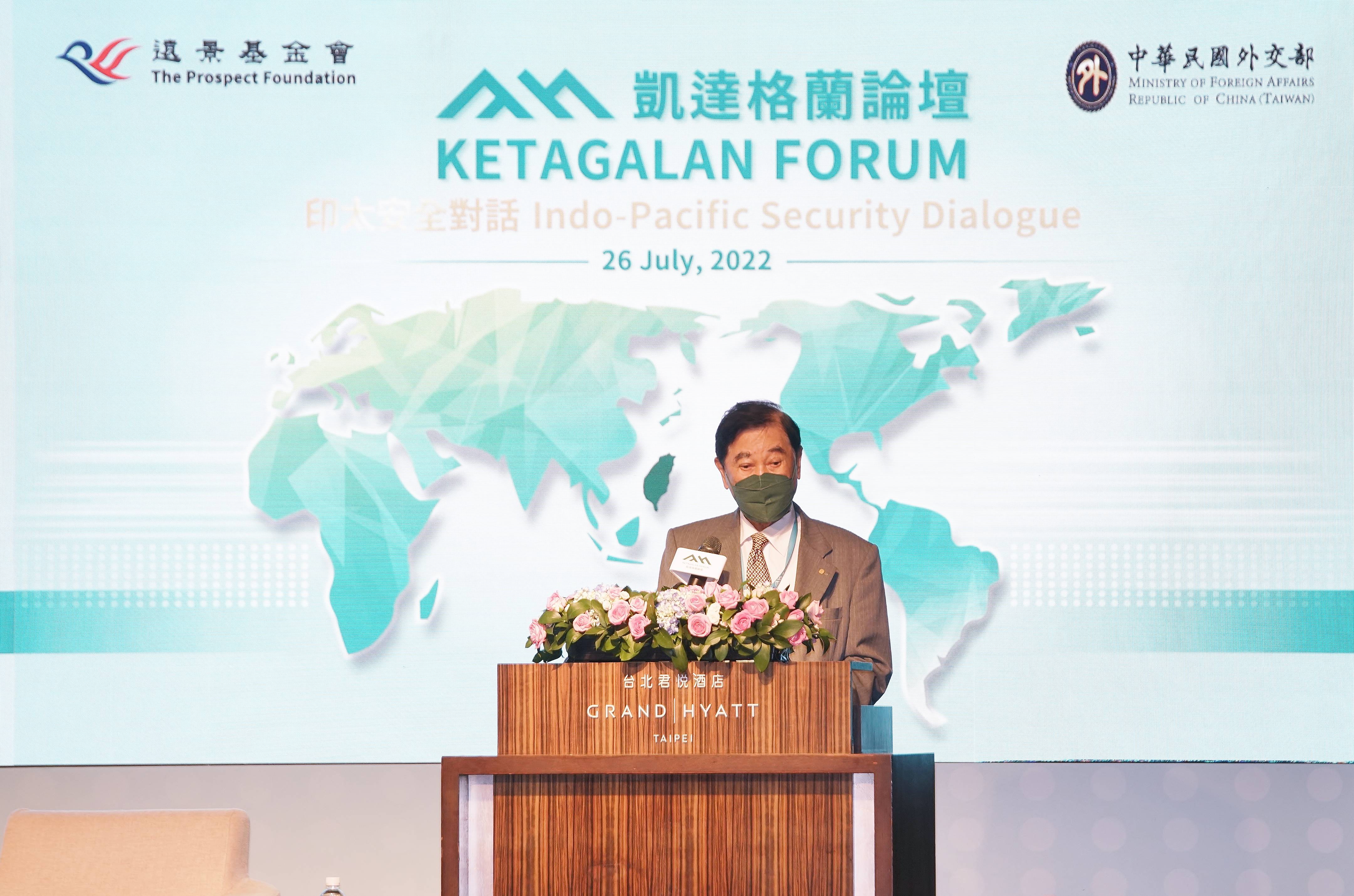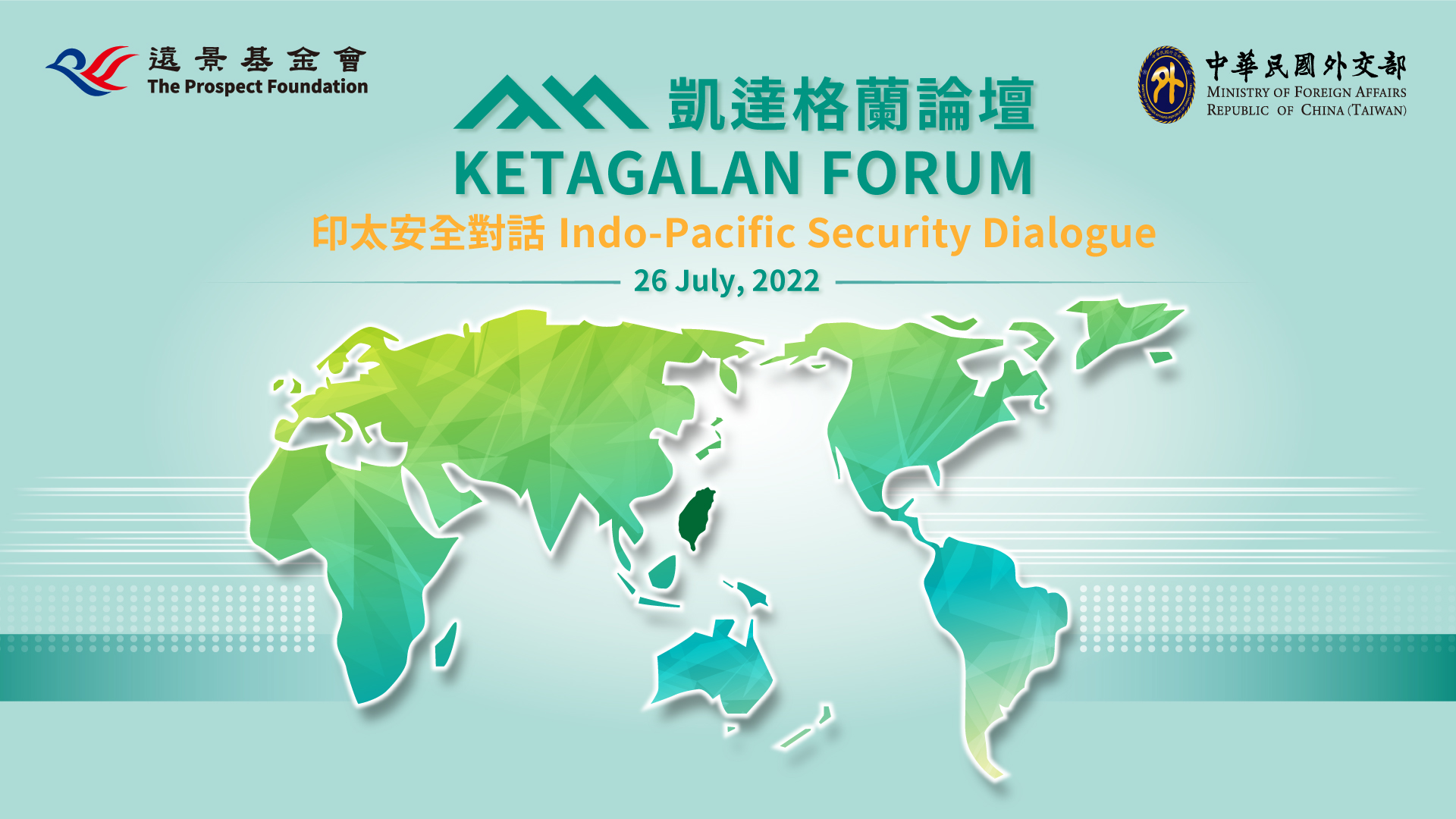【2022 Ketagalan Forum】Chairman Chen's Opening Remarks
Ketagalan Forum—2022 Indo-Pacific Security Dialogue”
Chairman Chen’s opening remarks
His Excellency President Ilves, Her Excellency Madam Ilvesa, Dr. Hsin-Huang Michael Hsiao, Honorable legislator Lo Chih-Cheng, Honorable legislator Ho Chih-Wei, Honorable representative Suzuki Keisuke, Honorable minister Kevin Andrews, Honorable minister Christopher Pyne, distinguished guests, ladies and gentlemen:
It is with great pleasure that I welcome you to this year’s “Ketagalan Forum—Indo-Pacific Security Dialogue.”
We are gathered here today in times of unprecedented crisis. In Europe, a dictatorship led by Vladimir Putin has done the unthinkable by launching a major war of aggression against its neighbor, Ukraine. The destruction wrought by the Russian military, with total disregard for civilian life and infrastructure, brings back memories of World War II. The inability of the international community, moreover, to deter Russian aggression puts into doubt the very liberal order that has underpinned the international system since 1945.
Closer to home, an increasingly assertive and confident China continues to expand its military and to challenge the existing order in the Indo-Pacific. Xi Jinping’s China, meanwhile, is becoming more repressive and more closed to the norms and values that allow freedom to flourish.
China’s support for Putin’s war on Ukraine also raises alarming questions about whether the Sino-Russian authoritarian axis has entered a new, more proactive phase: are Xi and Putin, and perhaps Kim Jong Un in North Korea, joining forces to challenge and dislocate the security arrangements that, one the whole, have been greatly beneficial to humanity? Are the new autocrats hijacking international institutions and rewriting the rules to create a system that is more permissive to their anti-democratic worldview?
Amid these challenges, our own democratic systems have come under unprecedented pressure. Embattled political systems, populists, disinformation and a loss of self-confidence in the democratic world are conspiring to sap our energy. The best lack all conviction, while the worst—to quote William Butler Yeats—are “full of passionate intensity.”
And yet, we cannot give up. And in fact, many of us today continue to hold on to the belief that we can prevail against the forces of revisionism that seek to create a world in which we do not want to live. We retain a belief in the art of the possible, driven by a belief that our cause is the right one.
And it is the right one: there is no moral equivalence between the liberal-democratic order we cherish—regardless of its imperfections—and the alternative that autocrats like Xi, Putin, Kim, and the many other despots who pepper the political landscape are proposing. No—not proposing, but seeking to impose, often against the very wishes of the people they claim to represent.
For far too long, the democratic world has talked about the problem. And it continues to do so. We must now move beyond that. We now know what the challenges are, and we know who our challengers are as well. Now is the time to act, because the other side is acting, as Russia’s actions in Europe have made all too clear. We must elaborate strategies and be as inclusive as possible while we do so. We must be imaginative and not allow self-imposed constraints, or fears, hamper our efforts to counter authoritarian revisionism.
This does not mean that we must abandon our democratic ideals or rule of law—absolutely not. But we must also realize that stagnancy, hesitancy, and lack of vision are a form of weakness that the autocrats will not hesitate to exploit.
It is not by accident that we are gathered in Taiwan today to discuss these important issues. As a model of democracy in Asia, Taiwan is on the frontlines of that clash of ideologies. It is the first bridge in China’s attempts to reorganize the regional order and rewrite the rules of the game in a way that benefits power and nothing else. Consequently, Taiwan can be—and is—part of the solution, a piece in the puzzle.
Let us therefore use this opportunity to come together and give serious consideration to the best tactics and strategies by which we can push back against authoritarianism in all its forms, from its corrosive “grey zone” activities to the rewriting of the map by military aggression. It is my fondest hope that this Forum can serve as a starting point for new ideas and, more importantly, for concerted action.
I thank you all for being with us today.


